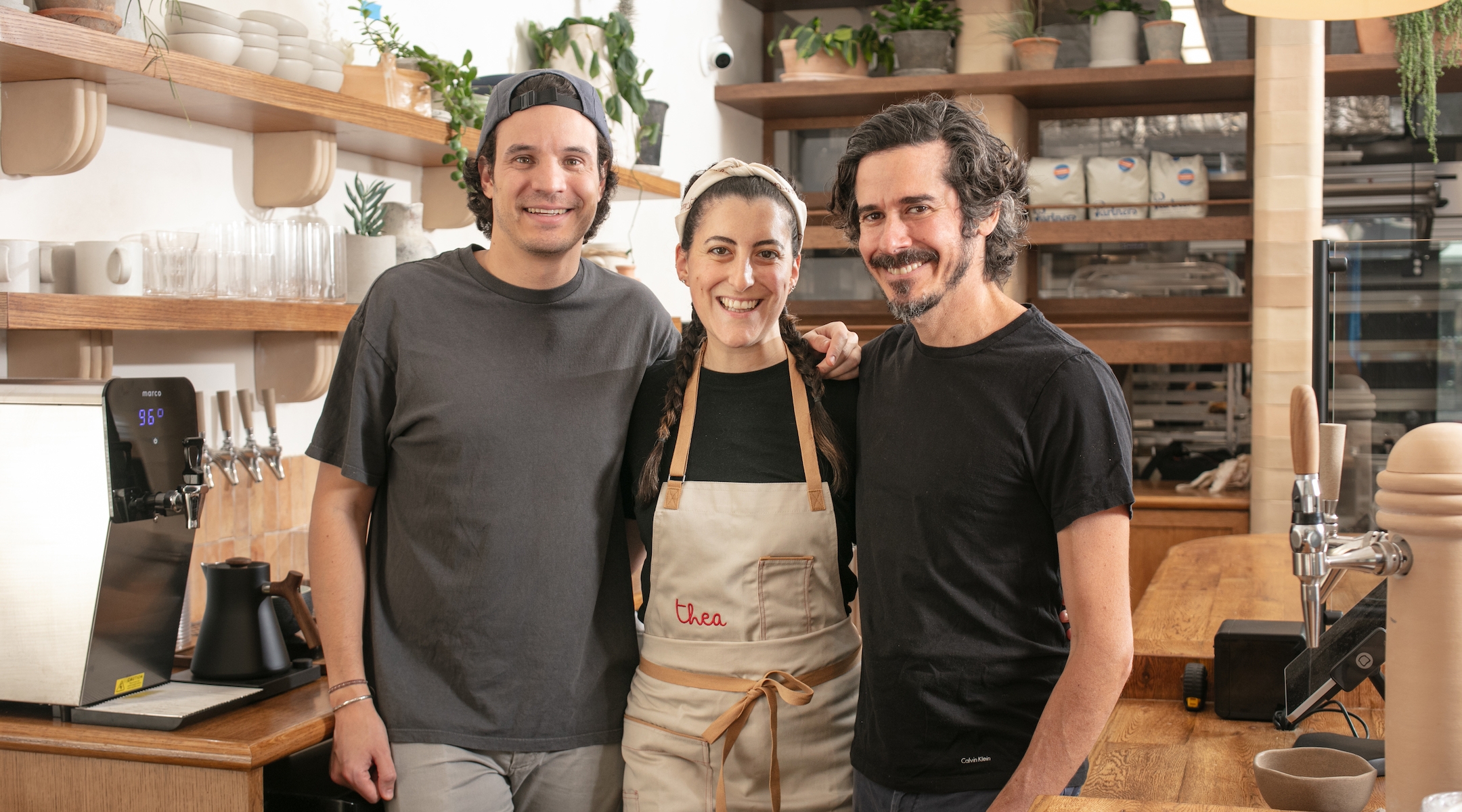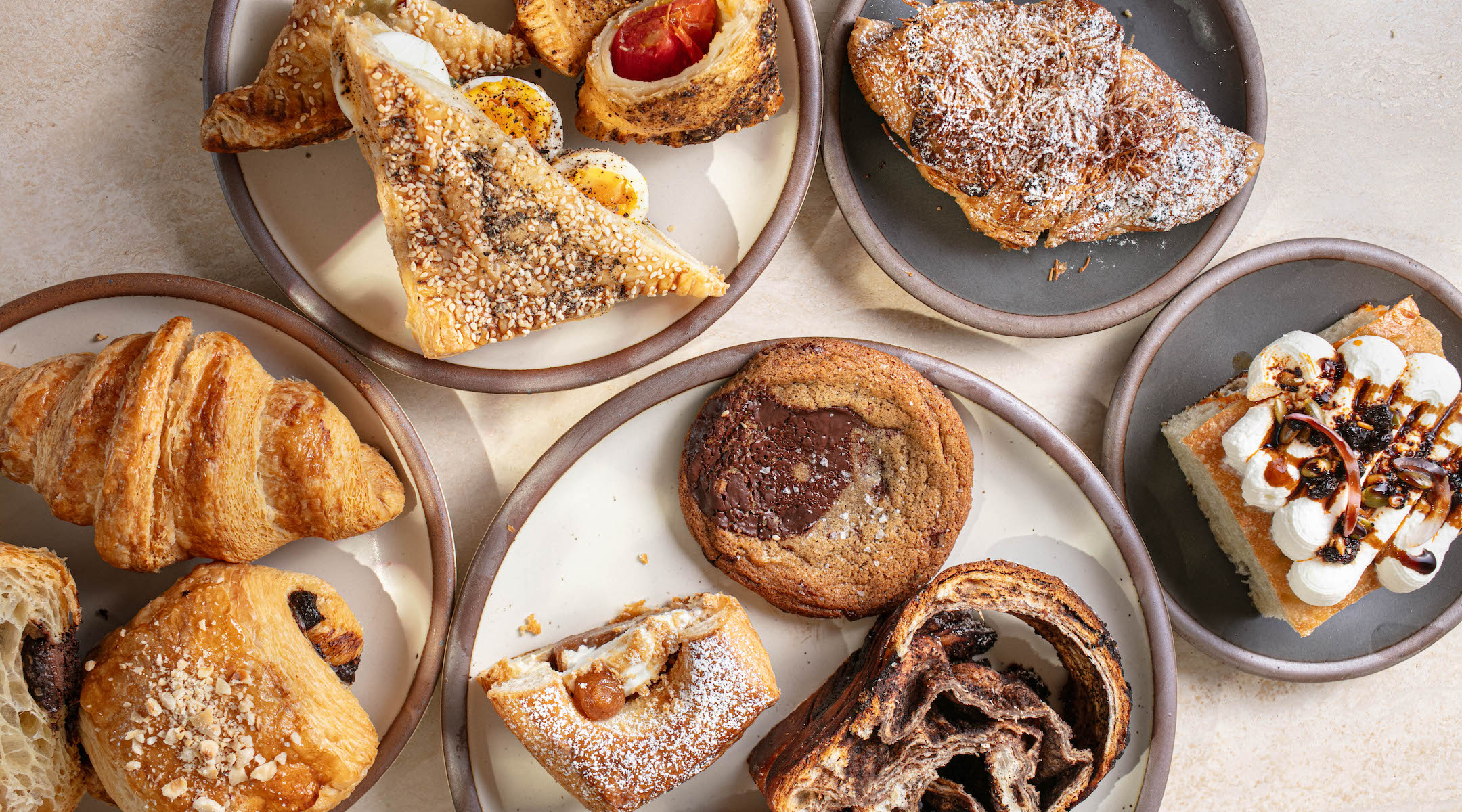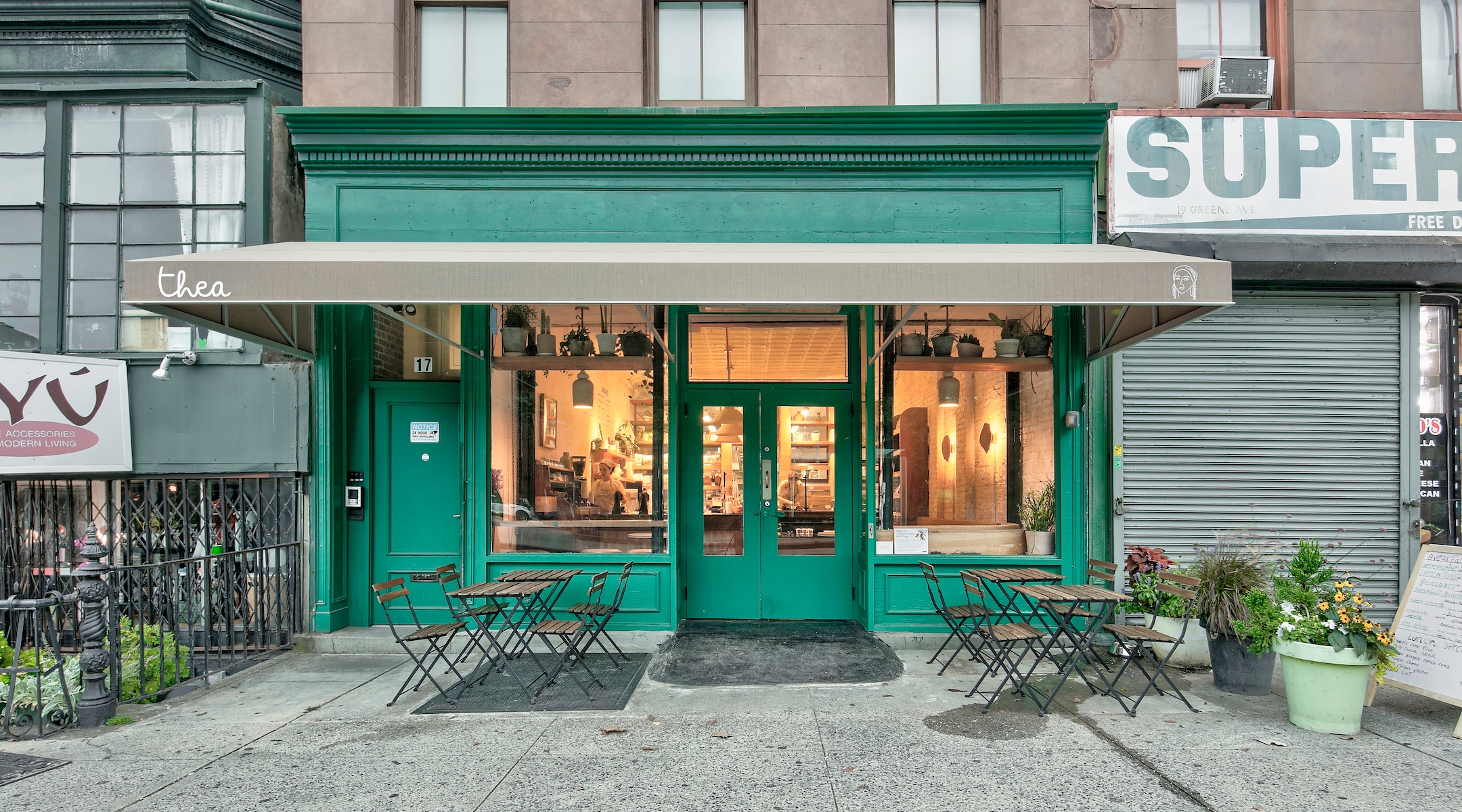Israeli chef Tomer Blechman made a name for himself in New York with Miss Ada, the Fort Greene eatery he opened in 2017 that’s received accolades for its inventive Israeli cuisine.
Since then, Blechman, 44, has continued to expand his Brooklyn empire, opening a smaller “sister” restaurant to Miss Ada, Nili, in Carroll Gardens in 2020, and, in February, Theodora, a Mediterranean restaurant with a focus on dry-aged fish.
In August, along with his Theodora business partner Gerardo Estevez, Blechman opened his first standalone bakery, Thea, which specializes in Israeli-style baked goods with a Mexican twist.
With Miss Ada, Theodora and Thea all operating within roughly a two-block stretch in Fort Greene, Blechman is developing something of an unlikely Israeli food empire in the hip Brooklyn neighborhood.
“I don’t think that was ever the goal,” Blechman, who lives in the neighborhood, told the New York Jewish Week. “But after opening Miss Ada and seeing the success and how much people love it, and thinking about the community and the connection that we have to them, I started looking for opportunities, especially to get in with Gerardo.”
“That’s the way that things happen,” he added. “If something’s going well, you’re looking for growth and it’s essential to grow if you have the right people and if you have the right ideas.”
 L-R: Gerardo Estevez, Thea’s pastry chef Christina Kavalis and Tomer Blechman. (Melissa Hom)
L-R: Gerardo Estevez, Thea’s pastry chef Christina Kavalis and Tomer Blechman. (Melissa Hom)
Blechman, 44, grew up in Ra’anana, Israel and moved to Brooklyn in 2006, originally intending to practice acupuncture. When he found his Israeli acupuncture license wasn’t accepted in the U.S., he pivoted to cooking, going on to work at Maialino, Bar Bolonat — a now-shuttered restaurant opened by pioneering Israeli chef and fellow Fort Greene resident Einat Admony — and Danny Meyer’s iconic Gramercy Tavern before he opened Miss Ada in 2017.
“Acupuncture is about healing, so the first thing that came to my mind was, ‘Everything that you eat is basically the first thing that can heal you.’ So then I started cooking,” Blechman told TimeOut in 2019.
Blechman told the New York Jewish Week that Miss Ada — its name is a pun on the Hebrew word “misada,” which means restaurant — is his most traditionally Israeli establishment, even though its website describes the food as “Mediterranean with a twist.”
Blechman said he chose the phrase for accuracy, not to avoid the ire of anti-Israel activists who have targeted other Israeli restaurants. “I wasn’t sticking to traditional Israeli food,” Blechman explained. “The style that we have is very much ‘looking at what is good in the market.’ The concept of Miss Ada wasn’t truly just Israeli. I didn’t want to limit myself inside of a box of saying ‘every dish has to have something Israeli.’
“So we’re very open to anything,” he continued. “But the way it comes out — very quickly and with all the dips and pita — is very Israeli.” (Miss Ada was also featured on the New York Jewish Week’s list of 18 essential Israeli restaurants in New York City.)

A variety of the pastries offered at Thea. (Melissa Hom)
At Thea, Blechman, along with Estevez, are spreading their wings a bit, exploring items like vanilla bean conchas, harissa caramelized onion babka and a creme-filled croissant topped with shredded filo dough. The small, light-filled bakery has just four indoor tables, and offers espresso drinks, bowls and sandwiches like pastrami, falafel, schnitzel and sabich on homemade challah bread.
Near the register, a grab-and-go fridge is stocked with the Israeli-style dips that Blechman has become known for, including sweet potato hummus, labneh and matbucha.
Blechman and Estevez, who hails from Mexico City, first met four years ago when Estevez, then a culinary school student, worked as a line cook at Miss Ada. When the pair opened Theodora, they had plans from the beginning for a “really nice bread program,” Estevez, 32, told the New York Jewish Week. “We had already talked about maybe someday in the future doing a bakery as well.”
Initially, the team at Theodora was doing all their baking in the basement — but due to popular demand for their breads, it became clear that more space was needed. “Luckily enough, we found something very close by to produce the pastries and bread and also do some more fun stuff at the baker,” Blechman said. “Everything just came together.”
“Both Theodora and the bakery are a partnership — we decide everything together and we have some more influence for Mexico City that we bring into play,” he added. “It gives us a lot of opportunity in both places to be creative and create a kind of ‘all over the world’ energy.”
Though his establishments’ flavors may be Israeli-inflected and globally inspired, Blechman said he could not imagine a better spot than Fort Greene to be in business.
“Something about this area is very cool,” he said. “People really care about their food, their wine, they appreciate cocktails. Something about the Fort Greene Park and the farmer’s market there makes people really appreciate what’s going on over here.”
Estevez added that Thea regularly sells out of its breads and pastries on the weekends. “People wanted to be there,” he said. “They’re adding it to their Saturday morning walking routine: They go to the park, and then they go to Thea, or the other way around. Within Fort Greene, it’s already become a destination.”
The New York Jewish Week brings you the stories behind the headlines, keeping you connected to Jewish life in New York. Help sustain the reporting you trust by donating today.





